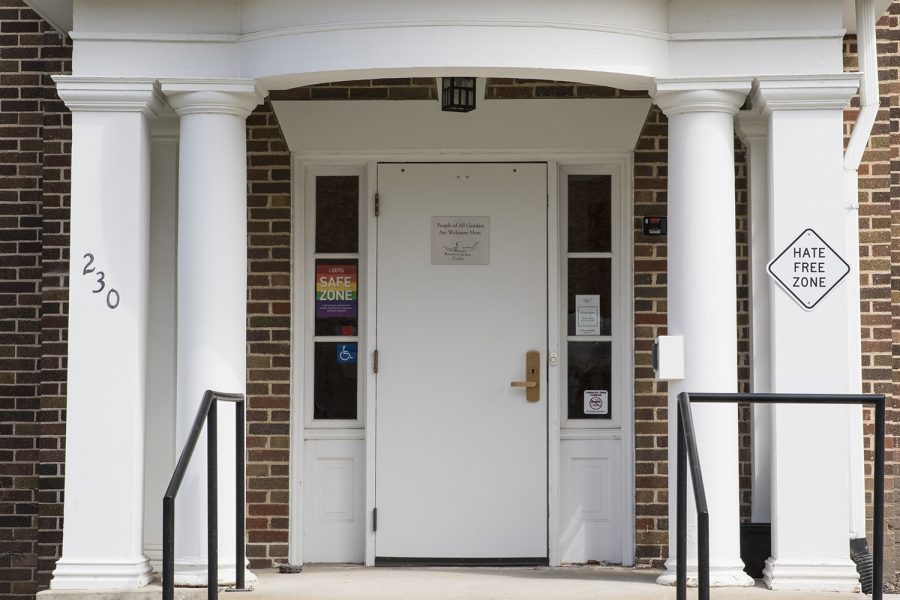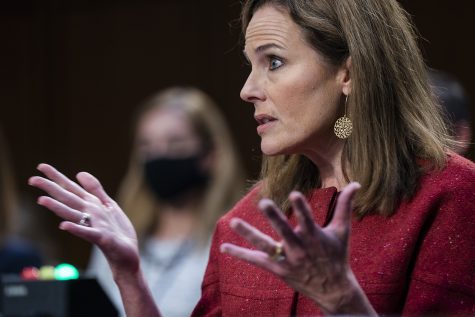Opinion | University of Iowa needs to do more to combat sexual assault
The current education students and faculty get about sexual assault are not nearly enough to effectively combat the risk of it occurring on University grounds.
The Women’s Resource and Action Center is seen on April 16, 2019.
October 13, 2020
After seven weeks in the fall semester, the University of Iowa has received four sexual assault reports involving two at fraternities, one at an east side resident hall, and one at a west side residential facility.
It’s no surprise that sexual assault is a prevalent issue at the university as one in five women and one in 16 men will experience it sometime during their college years.
While efforts have been made to combat this issue, such as the 2018-2021 anti violence plan by the Office of Sexual Misconduct Response Coordinator and the Women’s Resource and Action Center offerings of workshops like bystander intervention training, there is much more the University needs to take into consideration.
The only mandatory training that students take is during the online Success at Iowa course during their freshman year. With the delivery in online format and the unlimited attempts for the quiz, it’s no surprise that the message isn’t as effective as it should be. Instead, an in-person yearly training that clearly defines sexual assault and behaviors associated with it would be a better alternative.
Emily Breeden, a sexual assault survivor, feels that a one-time online training doesn’t do enough to spread awareness: “I don’t think it spreads awareness at all. A major problem is that many guys pretend not to see the behavior in friends. I hear guys say, ‘I’m afraid to touch a girl because she’ll say it’s sexual assault,’ and that’s how it should be. If you don’t have their consent, don’t touch them.”
Sara Felddman, assistant and deputy Title IX coordinator of the OSMRC recognizes the pros and cons of the current method. ‘The benefit of the online course is that you can reach everyone, but the drawback is students’ focus can lack which doesn’t allow them to absorb the information.’
Another area where the University could improve is faculty training and response. According to Feldmann, all staff that hold at least 50 percent appointment during the academic year and graduate/professional student teach assistants must complete a sexual misconduct and harassment course that is offered in person or online.
However, with sexual assault being such a prevalent issue on college campuses, faculty should be completing this training yearly and be more aware of the mental health effects of sexual assault.
Fifty percent of women who have become victims of sexual assault experience a lifetime prevalence of PTSD. Symptoms include sleep deprivation, flashbacks, emotional numbness, and high anxiety.
Breeden’s experience with the lack of empathy from her professor show they need to be better educated on the effects of sexual assault. In addition, the university should consider creating enforceable guidelines for accommodations due to the severity of mental health effects.
“The professors were not understanding at all. One told me that extensions weren’t a possibility. They need to be educated on the fact that sexual assault is very traumatic and has a huge impact on mental health. Night terrors, PTSD, depression, and panic attacks are all symptoms that sexual assault survivors have to deal with.”
Feldmann explained how the OSMRC works with professors and advocates for accommodations, but at the end of the day it’s up to the professor who has the authority to make those decisions
“Most of the time the faculty says yes. If a professor has reservations, we have a conversation to explain the situation and take it case by case since every course is different. However, we can only try and initiate understanding. We don’t have the power to force accommodations,” Feldmann said.
While services such as the OMSRC and WRAC offer support and awareness for sexual assault, the university needs to do more educate students and faculty on a how to handle a serious issue present on campus.
Columns reflect the opinions of the authors and are not necessarily those of the Editorial Board, The Daily Iowan, or other organizations in which the author may be involved.


















